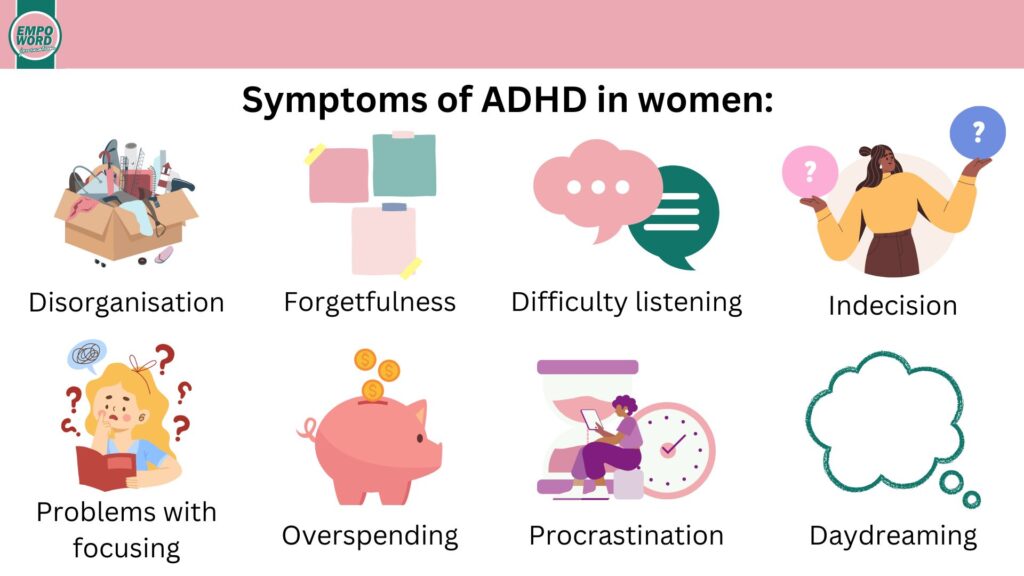Annie Koop
We live in a world where bright and talented women, full of potential, struggle silently with a condition which often goes undiagnosed. Attention Deficit Hyperactivity Disorder (ADHD) affects women, just as it does men, but how it manifests is misunderstood, overlooked, and underestimated.
It’s time to shatter the stereotypes, shed light on the unique experiences of women with ADHD, and empower them to reclaim their experiences.
The hidden struggles of ADHD
Approximately 4–5 per cent of adults worldwide have ADHD. It’s thought that a far higher percentage of the population is on the spectrum, but many are undiagnosed—especially women. Why?
Historically, the majority of ADHD research and diagnostic criteria have focused on men. This gender bias has left countless women without the necessary resources and education about their condition. Often, this results in delayed diagnoses and unnecessary struggles.
“I was able to understand the unique way my mind works and started working with my diagnosis.”
I have first-hand experience with the challenges of undiagnosed ADHD. Like many women, I was diagnosed in adulthood. My years in education were a maze of confusion and self-doubt as I grappled with the invisible struggles of ADHD, not understanding what was holding me back.
It was only after diagnosis and starting treatment that I discovered my full potential. I began to embrace the positives of my ADHD, including the creativity that comes with it. Finally, I was able to understand the unique way my mind works, and started working with my diagnosis rather than against it.
Symptoms of ADHD in women
Let’s explore the remarkable ways ADHD presents in women, distinct from the commonly known symptoms and stereotypes.
While hyperactivity is often associated with the disorder, the inattentive type of ADHD is more common among women. They may struggle with emotional dysregulation, organization and time management, and can focus intensely on tasks of interest.
These differences often contribute to misdiagnosis or a lack thereof, as traditional diagnostic criteria may not capture the nuances of women’s experiences.

Unfortunately, the journey to an accurate diagnosis for women is fraught with challenges. The gender stereotypes surrounding ADHD symptoms can lead to misinterpretation or dismissal of women’s struggles. Professionals overlook girls who are inattentive (rather than hyperactive) because their symptoms do not fit the traditional ADHD criteria.
Challenges in diagnosis and treatment
Women with ADHD may develop coping mechanisms and ‘masking’ strategies to compensate for their symptoms, further obscuring their struggles. Furthermore, the overlap between these symptoms and those of other conditions, such as anxiety or depression, can also complicate the diagnostic process. As a result, women often face delays in receiving the appropriate diagnosis and treatment.
It’s crucial to break down the barriers limiting women’s access to accurate information, support, and resources for managing their ADHD. We need to create a more supportive and informed environment for neurodivergent women.
Advocacy for women with ADHD
To address the gaps in awareness and education, there is a growing movement advocating for change. Organisations and advocacy groups, like the Kaleidoscope Society and ADDA, are working tirelessly to raise awareness about the unique experiences of women with ADHD. These charities aim to help women by challenging gender biases in research, diagnostic criteria, and educational materials.
“We have the power to embrace our unique strengths and conquer the challenges that come our way.”
By amplifying women’s stories, sharing experiences, and providing support networks, these initiatives empower women to embrace their neurodiversity, eliminate shame, and find strength in their journey.
Embracing strengths and thriving as neurodivergent women
As neurodivergent women, we have the power to embrace our unique strengths and conquer the challenges that come our way. Holistic approaches—including lifestyle adjustments, mindfulness techniques, and the power of community—can complement traditional medication and empower us to live fulfilling lives.
It’s time to rewrite the narrative surrounding women with ADHD. By debunking stereotypes, advocating for change, and promoting awareness, we can create a more inclusive and supportive environment. Addressing the unique challenges faced by women is crucial, ensuring timely diagnoses and access to appropriate support.
READ NEXT:
-
“I HAVE ADHD!” – DISCOVERING MY NEURODIVERSITY IN MY TWENTIES
-
WHY ARE WOMEN MORE LIKELY TO SUFFER FROM DEPRESSION?
-
ANOREXIA AND ME: IT’S TIME TO TELL THE TRUTH
Featured image courtesy of Stephen Kraakmo on Unsplash. No changes were made to this image. Image license found here.

